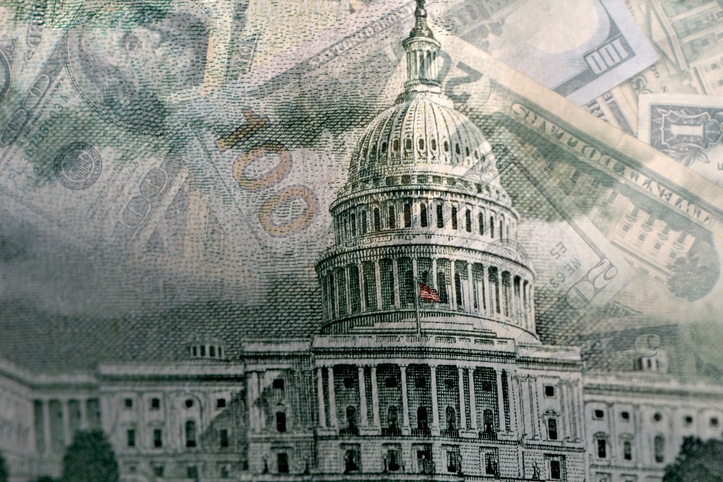On November 7, the Congressional Budget Office (CBO) released a Cost Estimate report for H.R. 7195, a bipartisan bill reforming the anti-money laundering (AML) Whistleblower Program. According to estimates by the CBO, the bill could lead to hundreds of millions of dollars in revenue over the next decade.
H.R. 7195 addresses current deficiencies in the law which established the AML Whistleblower Program, a whistleblower award program aimed at incentivizing individuals with first-hand knowledge of money laundering to come forward and cooperate with U.S. authorities. However, the law’s deficiencies, most notably the lack of a mandatory award minimum and the reliance on congressional appropriations to pay awards, has undermined the program.
H.R. 7195, which is cosponsored by Representatives Alma Adams (D-NC) and Anthony Gonzalez (R-OH), addresses these deficiencies by incorporating language found in other successful whistleblower award laws such as the Dodd-Frank Act. The bill entitles qualified whistleblowers to awards of 10-30% of the funds collected in the enforcement action aided by their disclosure and establishes a fund to finance the payment of whistleblower awards.
On June 22, the U.S. House Committee on Financial Services voted unanimously by voice to approve H.R. 7195. A companion version of the bill in the U.S. Senate is cosponsored by Senators Chuck Grassley (R-IA), Raphael Warnock (D-GA), and Elizabeth Warren (D-MA).
In its summary of H.R. 7195, the CBO explains that because the bill establishes a fund for whistleblower awards that is entirely financed through collected sanctions any awards paid out under the program will not be subject to appropriations.
“Under current law, a whistleblower is eligible for up to 30 percent of a collected penalty for
those violations, subject to the availability of appropriated funds,” CBO writes. “However, the Congress has not appropriated funds for this purpose, so neither agency has made any awards to whistleblowers. Because H.R. 7195 would create a new fund for payments, CBO expects that enacting the bill would result in new payments to whistleblowers that would not be subject to the appropriation of funds.”
The report then covers the estimated direct federal spending and revenue caused by H.R. 7195. According to the CBO, “[t]he estimate is based on data about criminal and civil enforcements from the Department of Justice (DOJ) and the Financial Crimes Enforcement Network (FinCEN). The estimate also uses analysis of similar programs at the Securities and Exchange Commission (SEC) and the Commodities Futures Trading Commission (CFTC).”
Assuming that H.R. 7195 is enacted near the end of the 2022 calendar year, the CBO estimates that it would “increase direct spending by $33 million over the 2023-2032 period.”
This estimated increase in direct spending is dwarfed by the CBO’s estimate for increased revenue caused by reforming the AML Whistleblower Program. “Based on information from FinCEN, CBO estimates the agency would collect an additional $41 million annually over the 2023-2032 period,” the report states. This annual amount equals a total of $410 million over the period.
H.R. 7195 would align the AML Whistleblower Program with both the SEC and CFTC Whistleblower Programs. In August, leading whistleblower attorney Stephen M. Kohn of Kohn, Kohn & Colapinto published a cost-benefit analysis of the CFTC Whistleblower Program. He found that since it was established in 2010, the program has netted a profit of $2.6 billion.
H.R. 7195 is widely supported by whistleblower advocates. The National Whistleblower Center has issued an action alert calling on individuals to urge Congress to act now and reform the AML Whistleblower Program.
Further Reading:
Congressional Budget Office Cost Estimate H.R. 7195
House Committee Approves Bipartisan AML Whistleblower Reform Bill
The Time is Now for Congress to Fix the AML Whistleblower Program
